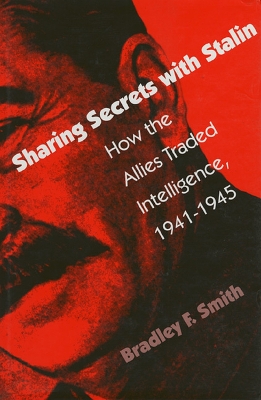Modern War Studies
1 total work
Author Bradley Smith reveals the surprisingly rich exchange of wartime intelligence between the Anglo-American allies and the Soviet Union, as well as the procedures and politics that made such an exchange possible. Between the late 1930s and 1945, allied intelligence organisations expanded at an enormous rate in order to acquire the secret information their governments needed to win the war. But, as Smith demonstrates, the demand for intelligence far outpaced the ability of any one ally to produce it. For that reason, Washington, London and Moscow were compelled to share some of their most sensitive secrets. Historians have long known about the close Anglo-American intelligence collaboration, but until now the Soviet connection has been largely unexplored. Smith contends that Cold War animosities helped keep this story from a public that might have found it hard to believe that such cooperation was ever possible. In fact, official denials - from such illustrious Cold Warriors as Supreme Court Justice Lewis Powell and the CIA's Sherman Kent - continued well into the late 1980s. Smith argues that, contrary to the official story, Soviet-American intelligence exchanges were both extensive and successful. He shows that East and West were not as hostile to each other during the war or as determined to march right off into the Cold War as many have suggested. Among other things, he provides convincing evidence that the US Army gave the Soviets its highest-grade ULTRA intelligence in August 1945 to speed up the Soviet advances in the Far East. Based on interviews and research in Anglo-American archives and despite limited access to tenaciously guarded Soviet documents, Smith's book persuasively demonstrates how reluctant and suspicious allies, driven by the harsh realities of total war, finally set aside their ideological differences to work closely with people they neither trusted not particularly liked.
